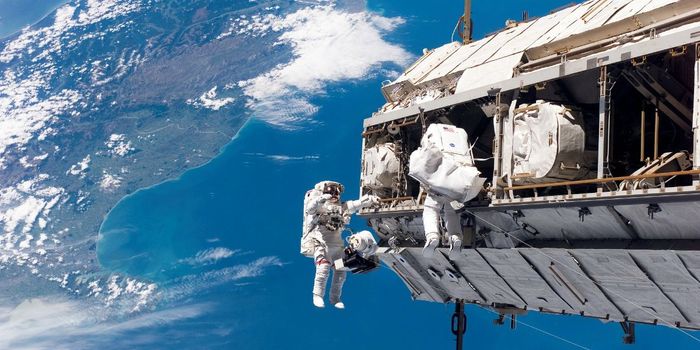Where Does Space Start and the Earth's Atmosphere End?
And so the debate rages on: where does the Earth's atmosphere actually end, and outer space begin? There are a lot of answers to that question, and it's difficult to pinpoint exactly who's right.
The official standard for the start of outer space is the Karman Line, which is 62.1 miles above the Earth's surface. This is the Federation Aeronautique Internationale's officially-accepted starting point for space.
Interestingly however, the International Space Station exists above the Karman Line. But that's where things get tricky. The Earth's atmosphere extends far beyond that of the International Space Station; the Thermosphere goes up as high as 621 miles above the Earth's surface, and then the Exosphere goes up as high as 118,000 miles above the Earth's surface.
While there is no perfectly definable point where the Earth's atmosphere magically turns into outer space, one way to look at it is that the atmosphere continues to get thinner the higher up you go up, and eventually, you hit a spot where you're not protected by the Earth's atmosphere anymore.
Nevertheless, the Karman Line is the "official" standard used for where space begins, love it or hate it.








